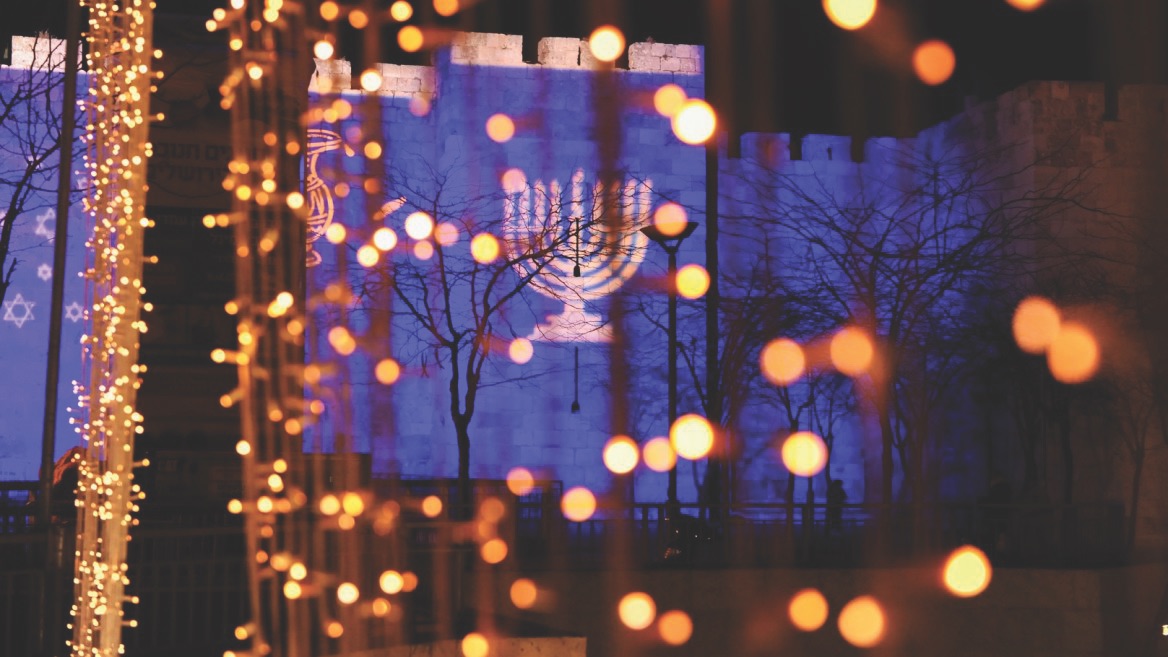
“What is Judaism?” asks Rabbi Jonathan Sacks. “A religion? A faith? A way of life? A set of beliefs? A collection of commands? A culture? A civilization?”
It is all of these, he responds, but something more — a “constellation of ideas.”
Judaism values the power to think. The rabbi describes our tradition as “a dazzlingly original way of thinking about life.”
In our Twitter-crazy world of radical polarization, are we losing this power to think? It often feels like it. We seem to always be in combat mode. We want to catch our opponents in a mistake, crush them with our talking points. Instead of valuing ideas, we value clever arguments. Above all, we want to be right.
Great ideas, though, are not about being right. They’re meant to enlighten, not bludgeon. They seek to open minds, not change them. They inspire thought, not angry passion.
Great ideas are not about being right. They’re meant to enlighten, not bludgeon.
Among his favorite ideas, Sacks quotes the American Declaration of Independence and its key sentence: “We hold these truths to be self-evident, that all men are created equal, that they are endowed by their Creator with certain inalienable rights, that among these are life, liberty and the pursuit of happiness.”
While claiming that “this is arguably the most important sentence in the history of modern politics,” Sacks notes the irony that “these truths are very far indeed from being self-evident. They would have sounded absurd to Plato and Aristotle, both of whom believed that not all men are created equal and therefore they do not have equal rights.”
The transformational idea of human equality, Sacks explains, can be self-evident only “to someone brought up in a culture that had deeply internalized the Hebrew Bible and the revolutionary idea set out in its first chapter, that we are each, regardless of color, culture, class or creed, in the image and likeness of God. This was one of Judaism’s world-changing ideas.”
Yes, ideas can change the world, but they can also change us.
One of my favorite ideas in Judaism is how we extract deep wisdom from our holidays. Digging for meaning is integral to the observance of rituals. We don’t just fast, pray or sit around a festive table. We’re supposed to go deep, find life lessons, ask big questions: How can these rituals help us grow? How can they bring us closer? How can they add meaning to our lives?
In our cover story this week, Rabbi Yosef Kanesfsky goes deep to find meaning in the quirky holiday of Hanukkah. If there’s one Jewish holiday that can use such an excavation, it’s surely the festival that has been so trivialized by its modern playfulness — by the dreidels and gelt and jelly doughnuts and latkes and Adam Sandler songs and those nightly gifts for the kids.
Beyond the fun stuff — which we should never undervalue — there’s spiritual gold to mine, and Kanefsky goes digging for the gems. Some of those gems speak directly to issues our community is facing.
“If we listen closely to Hanukkah,” he writes, “to its story and its laws, we’ll discover several indispensable pieces of advice that it offers — advice about how to hold together a community of differences, and about how such a community can learn to live and sing together, despite not always agreeing about every issue that arises.”
In his search, Kanefsky explores why Hanukkah falls so late after the great victory it commemorates. Why did Judah the Maccabee and company specifically choose the 25th of Kislev as the day to rededicate the Temple, even though the Syrian-Greeks had been driven out of Jerusalem months earlier, during the summer of 163 C.E.?
If there’s one Jewish holiday that can use such an excavation, it’s surely the festival that has been so trivialized by its modern playfulness.
“Judah’s wisdom of waiting,” Kanefsky writes, “was the wisdom of recognizing that Jews interpret the world and God’s role in it differently, with resultant differences in how to commemorate and observe significant events. And he understood that the greater our ability to hear and honor many voices, the greater is the likelihood that we will be able to establish a calendar and to practice sacred rituals that unite us all.”
That’s just to give you a taste of the spiritual gems that lurk beneath the dreidels and latkes. They’re part of that “constellation of ideas” Rabbi Sacks speaks about when conveying the compelling nature of the Jewish faith.
“Too few people think about faith in these terms,” Sacks writes. “We know the Torah contains commands, 613 of them. We know that Judaism has beliefs. Maimonides formulated them as the 13 principles of Jewish faith. But these are not all that Judaism is, nor are they what is most distinctive about it.”
What is distinctive is a “dazzlingly original way of thinking about life.”
In this issue, we offer you a dazzlingly original way of looking at Hanukkah. But don’t worry, we also have some great food and gift ideas.
Happy Hanukkah.























 More news and opinions than at a Shabbat dinner, right in your inbox.
More news and opinions than at a Shabbat dinner, right in your inbox.